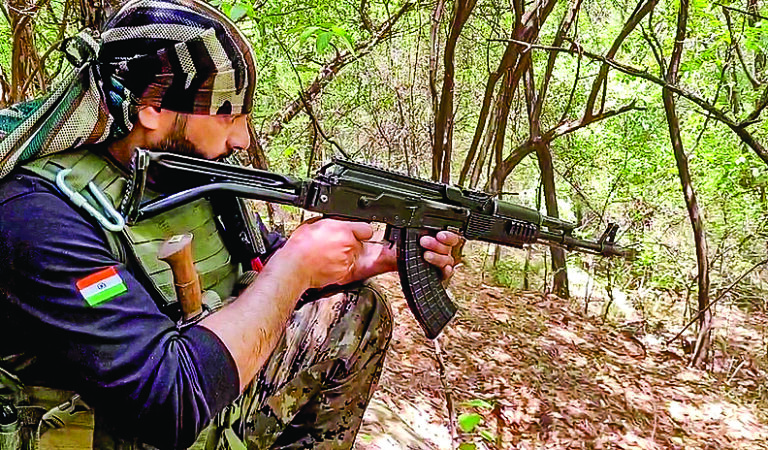New Delhi: The death of over 50 security forces personnel in Jammu since August 2021 has brought into focus one of the most crucial parts of counter-terrorism operations – generation of reliable intelligence. The need for it has become urgent following a surge in terror operations led by the China-Pakistan axis that are disrupting life and prosperity in Jammu and Kashmir and creating addiction and violence in Punjab and other parts of the country through narcotics smuggling.
The Sunday Guardian spoke to several people involved in one way or another in the effort to eradicate terrorism from Jammu and Kashmir and one of the key issues that emerged from these interactions was the lack of solid, actionable intelligence, which is leading to terrorists launching surprise attacks on security forces personnel and not the other way around.
Sources said most of the deaths of Indian officers and soldiers would not have happened if the intelligence agencies concerned had at least predicted what the terrorists were planning, if not when and where.
The Jammu and Kashmir Police, which has much stronger intelligence gathering capabilities than other police forces, especially due to its local base, has come under scrutiny for not providing the expected intelligence (quantitative and qualitative) to the central forces, which has resulted in at least 10 terrorist ambushes since the period mentioned above.
According to security sources, the intelligence network of local police in the interior has come under scrutiny for its ineffectiveness. Officials said terrorists, mostly from Pakistan’s Punjab and Khyber Pakhtunkhwa provinces, appear to have strategically not targeted Jammu and Kashmir Police (JKP) personnel to avoid resenting the provincial police and leaking credible intelligence against them. This has resulted in the JKP being less involved in counter-terrorism intelligence operations, further weakening its overall response to terrorist activities.
While the Jammu and Kashmir Police is traditionally tasked with maintaining law and order, its strong local presence and understanding of socio-political dynamics in the region have put it at the forefront of counter-terrorism operations in one of India’s most volatile regions.
The Intelligence Bureau (IB) and the Research and Analysis Bureau (R&AW) in the area of intelligence gathering share information with the Indian Army, whose task it is to leverage the intelligence gathered by these specialised agencies and act accordingly. Both the IB and R&AW have worked to penetrate the complex intelligence networks maintained by terrorist groups. Otherwise, much of the intelligence provided by these sources would be akin to “shooting in the dark”.
The issue of needing to generate quality intelligence has become a hot topic in the field of human-to-human intelligence. Foreign terrorists are employing increasingly sophisticated means of communication, especially the use of micro-miniature radios. Such radios have been provided to Pakistani intelligence by the Chinese military, and their flow has been unpenetrated and ignored by Western counter-terrorism agencies. These radios are being used by terrorist groups operating in Jammu to coordinate attacks. Similarly, these groups are using encrypted messaging apps such as Telegram and Signal, which have rendered traditional surveillance and interception technologies ineffective.
While it is true that the Army has its own intelligence organisation – Military Intelligence (MI) – which is responsible for collecting, analysing and interpreting intelligence on enemy forces and potential threats, sources said there was a need to increase resources available not just to MI but also to local police, IB and R&AW.
Local police stations are to be the main centres for intelligence gathering across the country.Furthermore, the Intelligence Bureau (IB), as a specialised independent agency, has been given significant resources for intelligence gathering.
There have been voices from within the state’s security establishment calling for an end to the ceasefire agreement between India and Pakistan, which was signed in February 2021. These voices cite the current situation and claim that the ceasefire has allowed terrorist groups to regroup and strengthen while leaving the Indian Army vulnerable. The call for an end to the ceasefire is based on the premise that a more proactive and assertive posture is needed at the international border to curb the rise of terrorism and effectively secure the region. The ceasefire, which was meant to bring stability, has instead given a strategic advantage to the enemy. While India is losing soldiers, the Pakistan Army is not feeling such losses as it is losing terrorists who are not officially considered part of the army.

